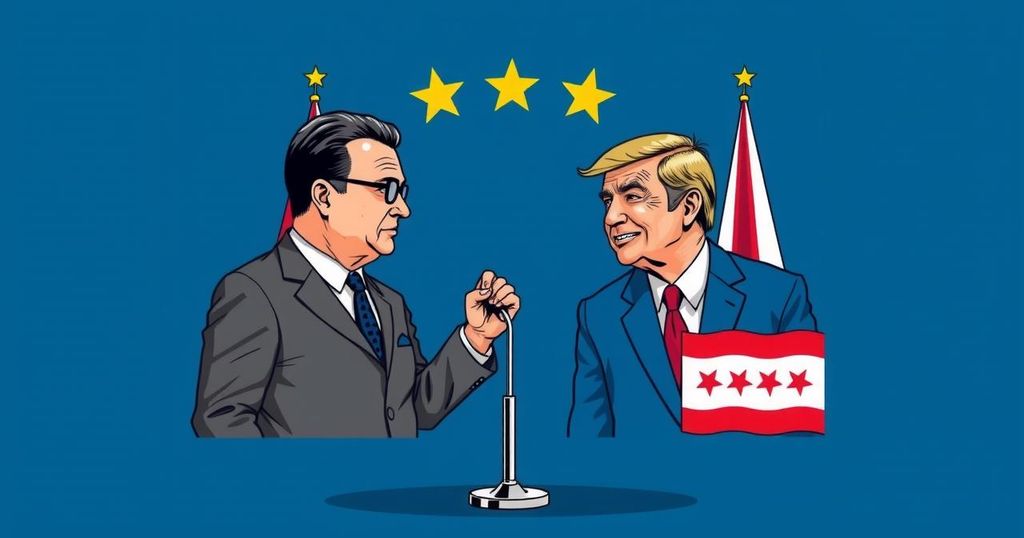President Biden met with Cyprus President Nikos Christodoulides amid increasing concerns about American leadership following the upcoming election. While discussions covered crucial issues like the Middle Eastern conflicts, the anxiety regarding a potential decline in America’s global standing loomed large, echoing concerns of international leaders over the implications of an isolationist approach.
As the United States approaches its crucial upcoming election, President Joe Biden held a significant meeting in the Oval Office with Nikos Christodoulides, the President of Cyprus. This interaction, which marked Biden’s last engagement with a foreign leader prior to the election, predominantly focused on pressing global matters, specifically conflicts in the Middle East and Europe. While these discussions appeared productive on paper, an underlying concern pervaded the atmosphere: what future role will America play on the world stage following the election? Cyprus, although a relatively small nation often overlooked during electoral dialogues, has maintained strategic importance in the current geopolitical landscape, particularly concerning its historical status as a financial haven for Russians and its recent contributions to humanitarian efforts pertaining to Gaza. During their discussions, President Biden acknowledged Cyprus’s initiatives in establishing maritime humanitarian corridors to facilitate the delivery of essential aid to Gaza amidst ongoing regional strife. In a post-meeting interview, President Christodoulides articulated a widespread trepidation concerning the potential ramifications of the election outcome on American leadership: “There is always a fear that you could have an America stepping back, a kind of seclusion and isolation. We’ve seen it in the past. That’s the main concern because the region is in turmoil right now. It’s extremely dangerous.” This sentiment reflects a broader anxiety among foreign leaders regarding the implications of an uncertain political climate in the United States, which could adversely affect global stability.
The article addresses the increasing global apprehension regarding the United States’ role in international affairs as the election approaches. It emphasizes the concerns expressed by foreign leaders, especially in light of the pressing conflicts in regions such as the Middle East and Europe, highlighting the fragile balance of international relations and the fears of American isolationism.
In conclusion, as the United States heads into a pivotal election, the discussions between President Biden and President Christodoulides underscore significant international concerns regarding potential shifts in American leadership. The fear of isolationism and retreat from global responsibilities looms large, making it imperative for the elected leadership to reassure allies and maintain active engagement in international matters, especially amidst turmoil in regions like the Middle East.
Original Source: www.nytimes.com







